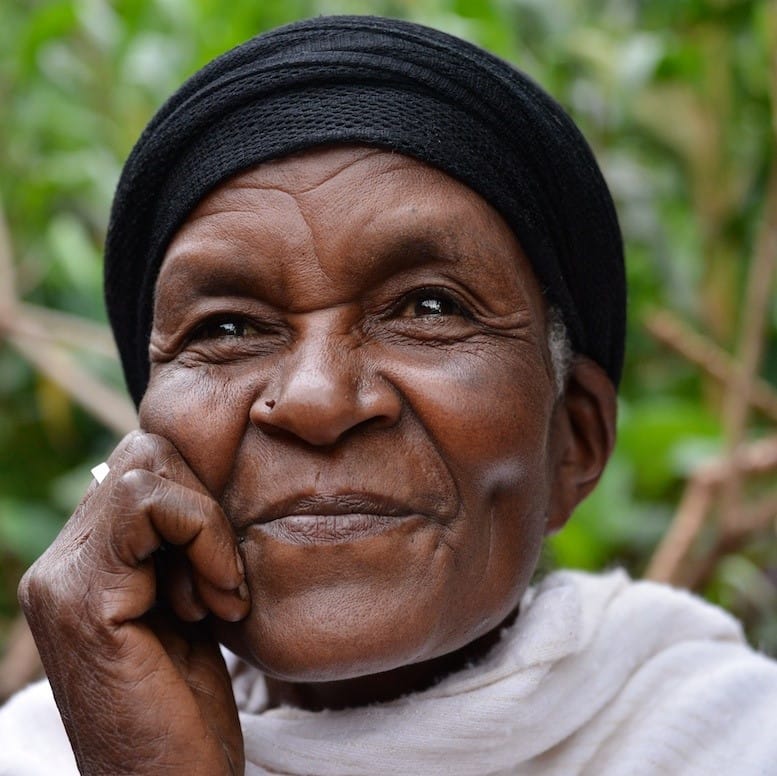
Grandmothers fighting depression
Second-year Psychology students participating in the University Honours College follow a workshop on Blogging Science, in which they learn to communicate science to the general public, by means of informing, giving an opinion, and relating issues in science to issues in society. This year a selection of these written blog posts is published on Mindwise. Today’s post is by Nele Heidkamp.
Zimbabwe is a country in southern Africa with a population of around 13 million people. One in 4 of Zimbabweans suffers from a common mental disorder. That is more than 3 million people. A number of 1.3 million suffer from Humane Immunodeficiency Virus (HIV), which increases the likelihood of suffering from mental disorders. There are 9 institutions providing mental health care in the country. But only 2 of them have a psychiatrist. In total, there are 11 psychiatrists and 20 clinical psychologists in the country. That makes 1 psychiatrist per 1000000 of the population. Something clearly does not ‘add up’ [2].
Feasibility of WEIRD health care
The above means that psychiatrists in the country often do not meet their clients in person and do not have the time to treat all of them individually. In addition, clients often cannot come to see their psychiatrists or psychologists because they simply live too far away. Additionally, 72% of Zimbabweans live below the poverty line. Even if they had access to professional psychological help, they would not be able to afford it [2]. This suggests that the number of psychologists and psychiatrists is unlikely to increase, as many people cannot afford the education needed to become a psychiatrists.
These numbers illustrate that the classical approach to mental health – seeing a psychologist or psychiatrist and receiving therapy or medication – clearly does not and cannot work in countries like Zimbabwe. Yet, dozens of studies investigate the implementation of culturally adapted therapies developed in Western, Educated, Rich, and Democratic (WEIRD) countries to countries such as Zimbabwe. These therapies are mostly based on studies of undergraduate Psychology students, thus of individuals who clearly live in very different circumstances than people in developing countries. The Zimbabwean example illustrates that although such therapies may be effective, only a select few number of people can benefit from them. Psychological professionals are too few and many patients do not have the financial means to see them. Trying to use methods that work in WEIRD countries in developing countries seems like trying to make a recipe from a great cookbook in a kitchen that is not fully stocked with the necessary ingredients. You can try, but it simply may not work. So, what is the alternative?
Grandmothers on park benches
The friendship bench project might be one [2]. The project, developed by Dixon Chibanda, has realised that, while there are few mental health professionals, there are many grandmothers. And grandmothers seem to be the solution. The project has trained them to become lay health workers. They deliver a primary care-based problem-solving therapy to help people with problems like anxiety and depression. Their therapy is community based and takes place in the community – on park benches. They are trained to listen and to support, and it seems to work! [1]
The initial pilot study was successful: Symptoms decreased significantly after 3-6 sessions, proportional to the number of sessions. This decrease has been identified as a meaningful change. A proportion of 66% of the people who completed a minimum of three sessions recovered at 6-8 weeks [3].The program has been found to reduce suicidal ideation effectively [5]. Compared to an enhanced usual care treatment, consisting of a nurse-led evaluation, brief support counseling, information, education, and support, and assessment for antidepressant medication and/or referral to a psychiatric facility (if needed), the friendship bench approach seems to work better [6]. Grandmothers seem to be more effective at treating depression than doctors, so Chibanda in a TED-Talk [1].
Broaden our horizon
As of today, those grandmothers are working in more than 70 communities and over 27500 people have received treatment [3].The Friendship Bench has expanded to Malawi, Zanzibar and New York [1]. The Zimbabwean project is currently developing an expansion specifically targeting adolescents, the Teen Bench [2]. Perhaps the approach could be a beneficial adaptation of the expensive western system as well?
So instead of attempting to make a great recipe in a kitchen that is not stocked with the necessary ingredients, you may want to substitute those ingredients. Currently, we seem to expect therapies that are designed to be delivered in clinical settings to work in regions where there simply are no such clinical settings. Instead, psychology might consider developing a worldwide network of grandmothers on park benches, in order to reduce the treatment gap for mental health problems. Instead of generalising findings from WEIRD samples to non-WEIRD populations, we need to broaden our horizon – starting with mobilizing our grandmothers.
Relevant links and publications
[1] https://www.ted.com/talks/dixon_chibanda_why_i_train_grandmothers_to_treat_depression#t-813346
[2] https://www.friendshipbenchzimbabwe.org/
[3] http://www.mhinnovation.net/innovations/friendship-bench
NOTE: Image by Rod Waddington from Kergunyah, Australia (Grandmother, Wollaita, Ethiopia) [CC BY-SA 2.0 (https://creativecommons.org/licenses/by-sa/2.0)], via Wikimedia Commons



